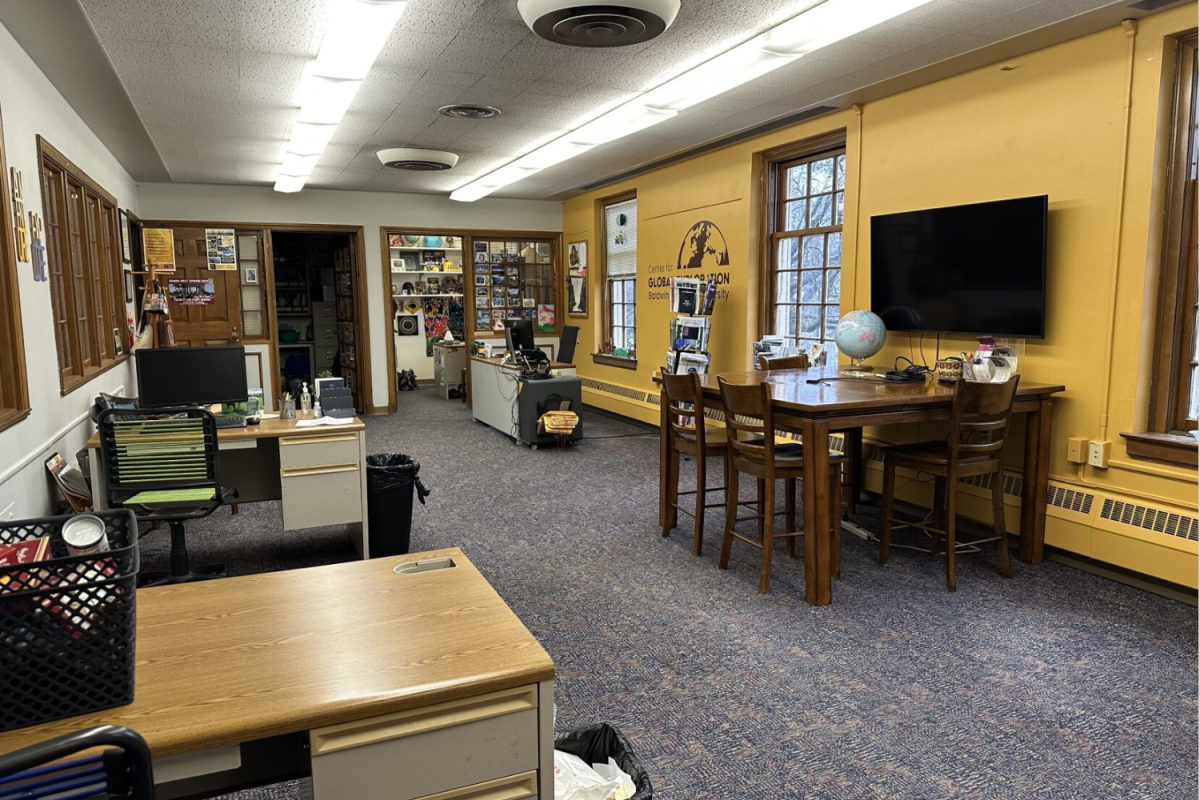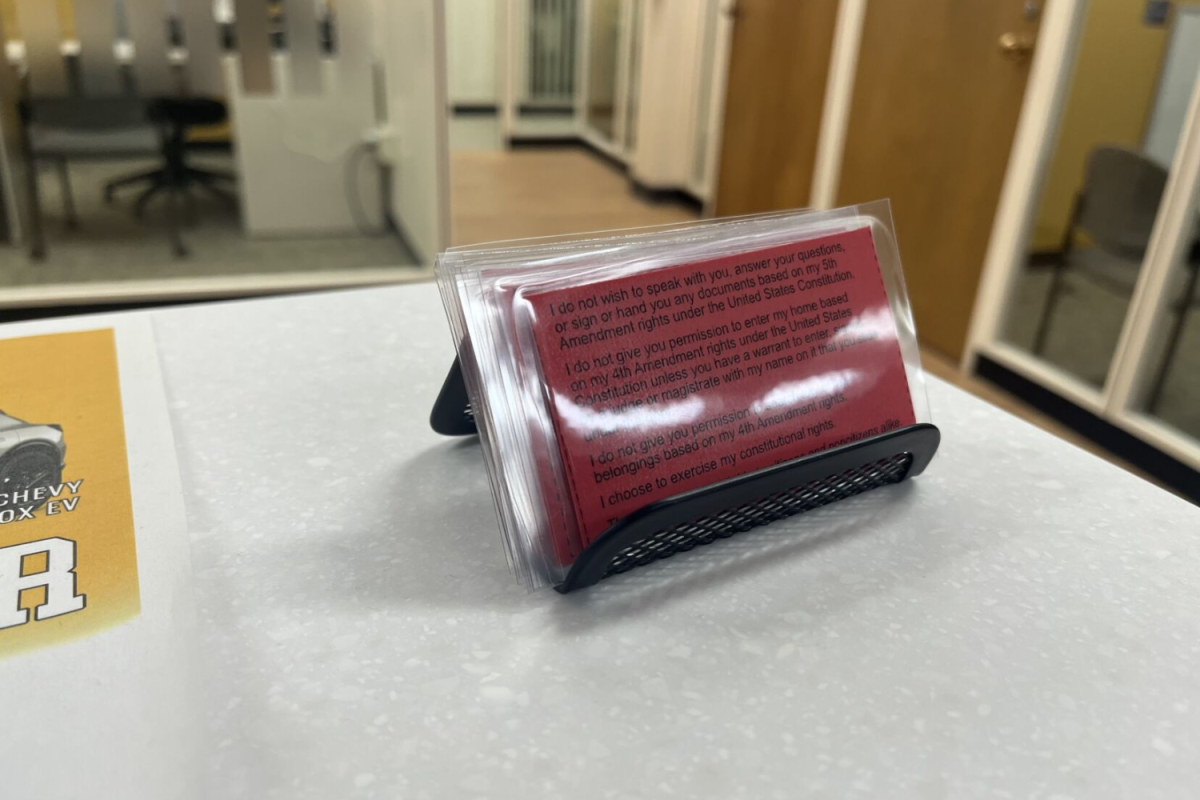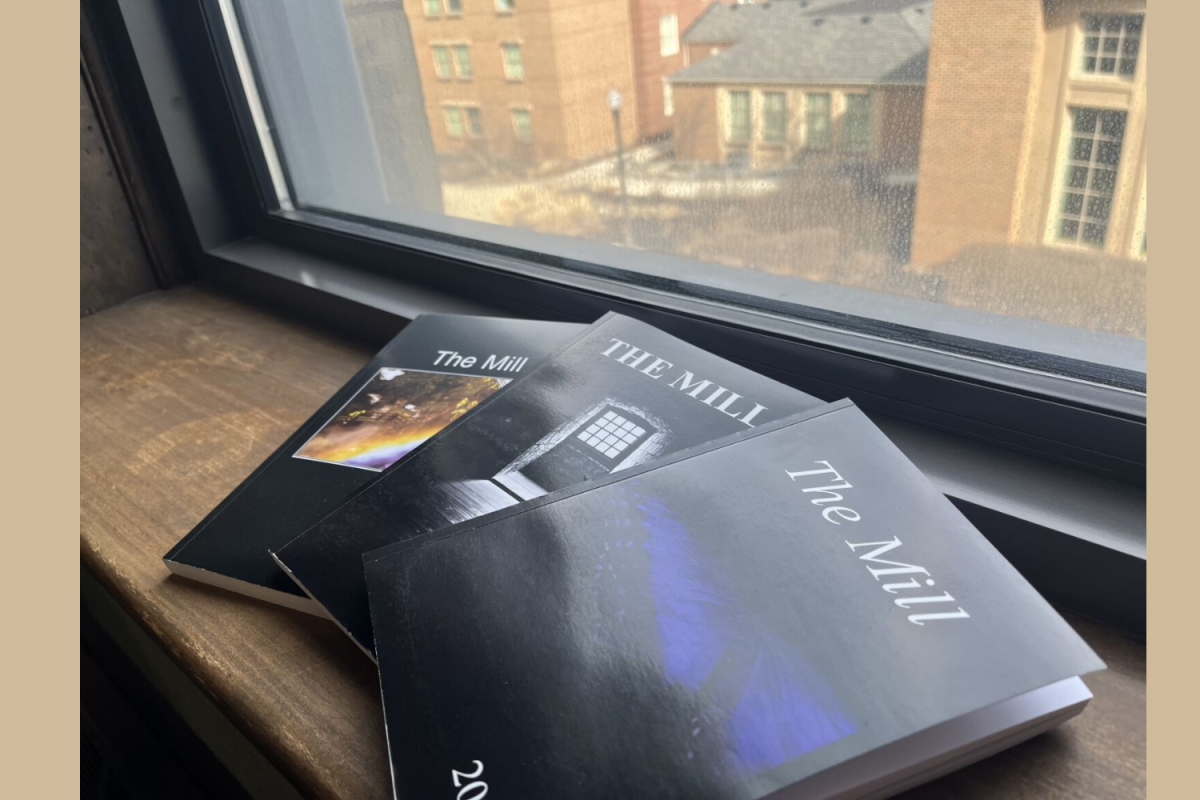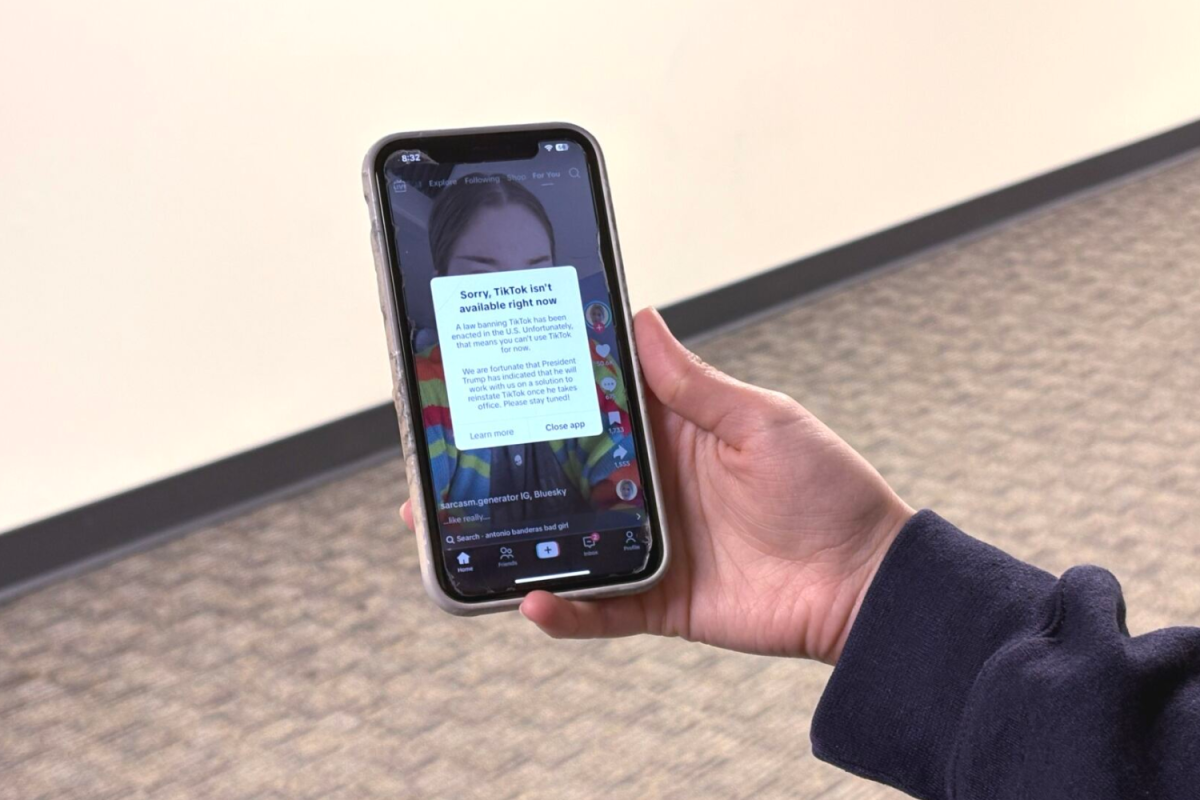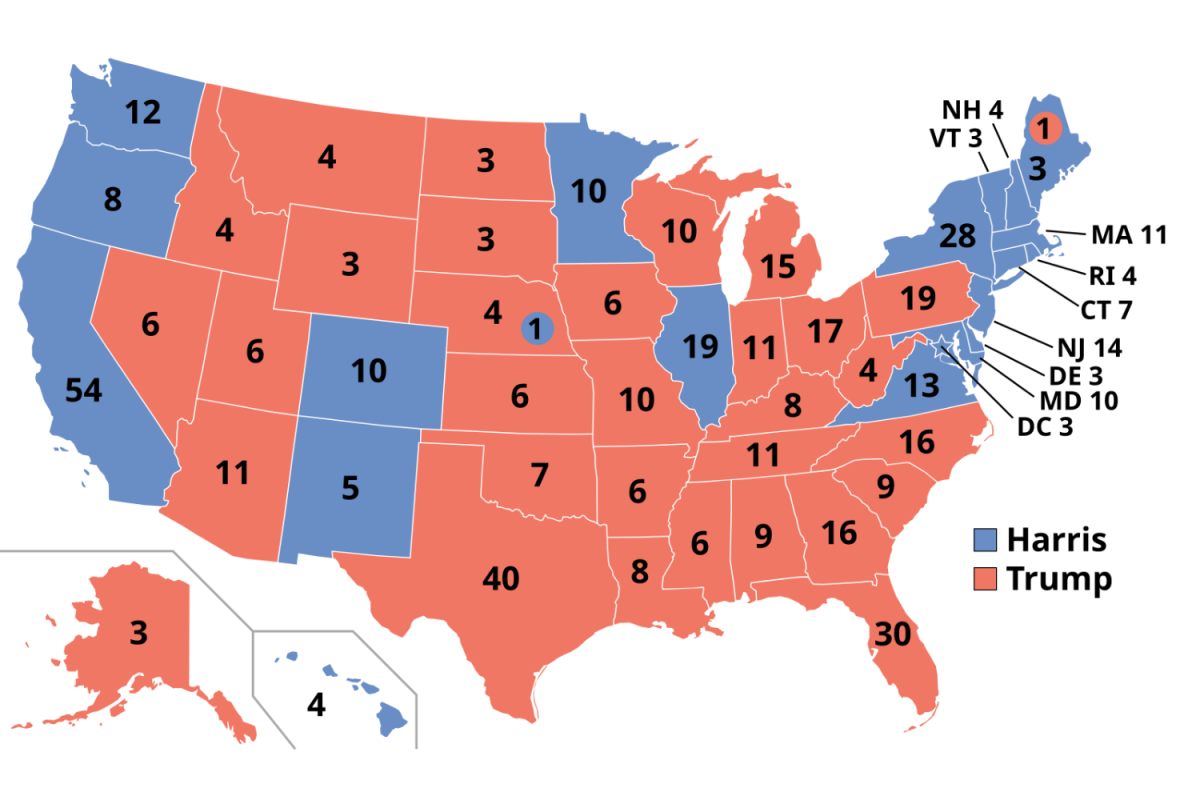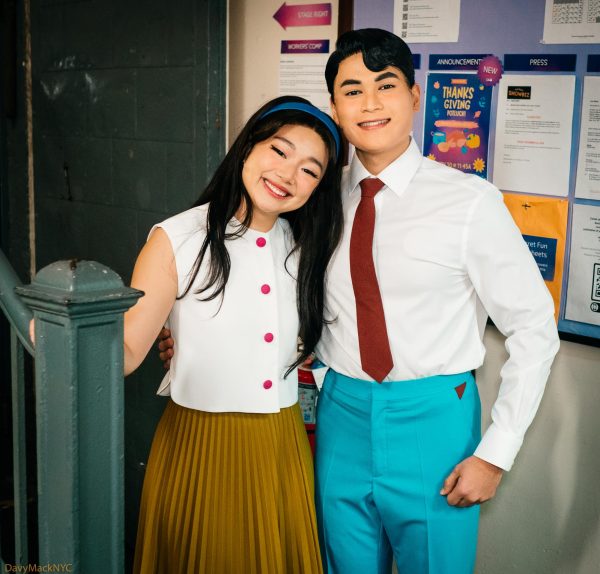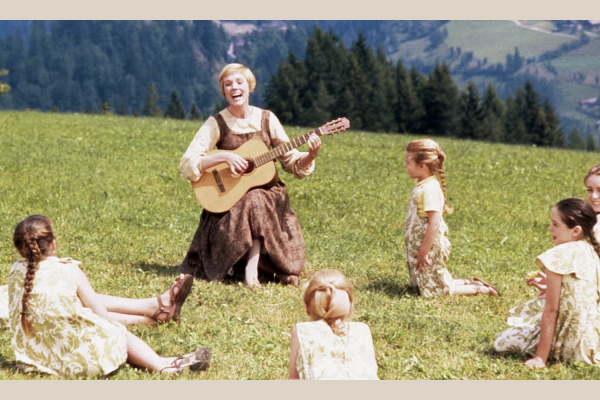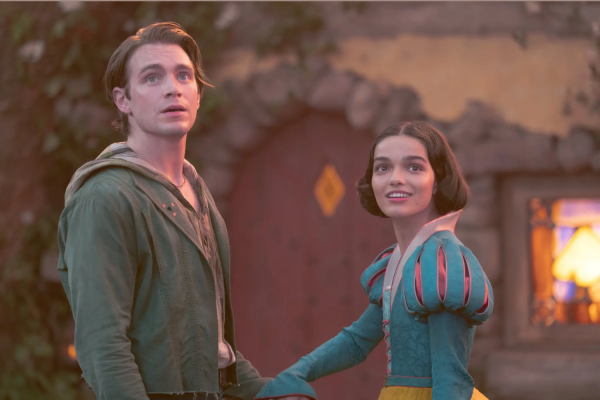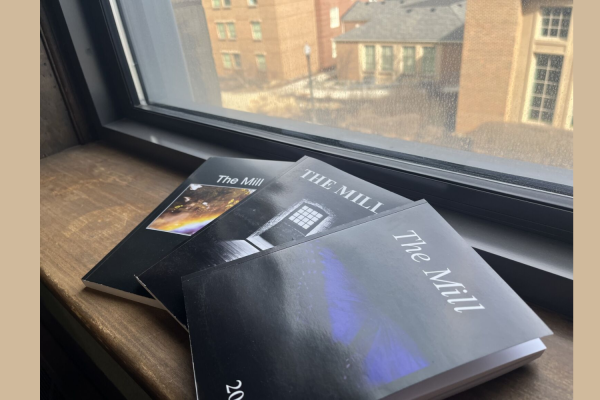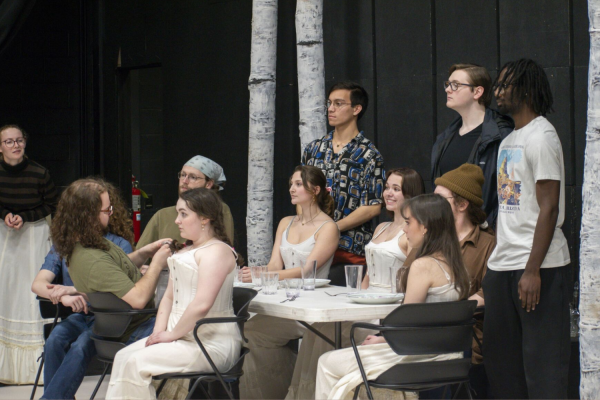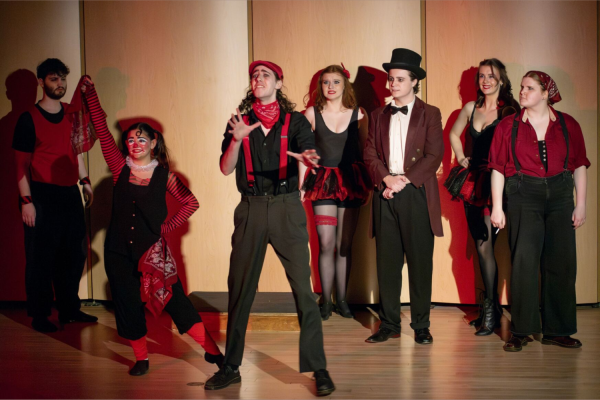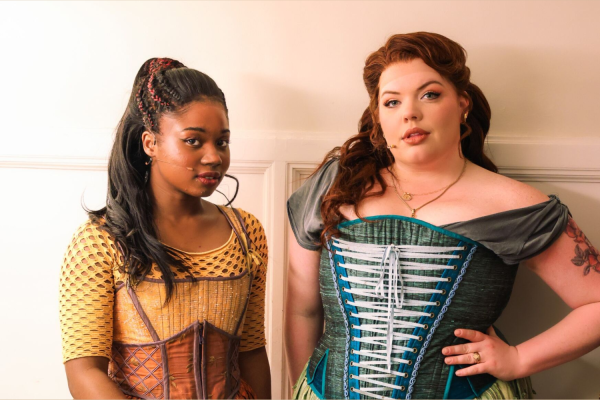Should We Trust the Ones We Love?: Review Judge & Jury
Should we trust the ones we love? A new student-led play produced as part of the BW theatre department’s Lab Series endeavors to find out.
Judge and Jury, written and directed by senior acting and directing major Reed Kruger, ran from Feb. 10-13 in the Loomis Hall acting studio. The tickets sold out two days before their opening night.
Kruger, who also minors in creative writing, said it took him two and a half years to complete the play from his initial concept to the final draft.
“It started when I was watching a whole bunch of documentaries about Ted Bundy, in particular ‘The Ted Bundy Tapes’ on Netflix,” Kruger said. “I was like, ‘What would Ted Bundy’s girlfriend think about this?’ So, I wanted to kind of get that mindset and put it on stage.”
According to Kruger, he wanted to put this idea on stage because it’s a format where the audience can be an extension of the protagonist and her point of view.
“I wanted the audience to be the jury,” Kruger said. “I always knew it’d be a courtroom scene where the audience was the jury and that’s essentially what inspired me.”
“Judge and Jury” is Kruger’s first full-length play. He has written and directed 10-minute plays in the past, but this show had a more intense directing process.
“[A] two-hour production is just a whole different beast,” Kruger said.
Judge and Jury is about Liz, a divorced woman going through speed dating, where she meets John, a charismatic and kind guy. They fall in love and after five months, and John proposes to her. Liz is hesitant to marry him in a short amount of time, and feels she needs to know him more.
While John waits for her answer, different arguments occur between them. One of them is initiated by the lack of communication John had during a trip away. Liz finds feminine underwear in John’s baggage, and believes he cheated on her. However, the reality is worse than her idea. Through the judicial process, Liz learns more about John’s past.
The play also touches on themes of so-called “cancel culture,” where people’s past are being found and exposed to attack their career or persona.
“Every single thing you’ve done or said is being brought to modern light and being judged in a modern context,” Kruger said.
He wanted to replicate the same type of feeling on stage where the audience gets to know the character and root for them. When John’s past is questioned, the characters and the audience need to decide whether or not they believe him. Kruger ended the play without revealing John’s verdict.
“That’s why we never learned the actual verdict because the audience has to decide,” Kruger said.
The Lab Series dedicated to giving student directors an opportunity to direct a play. Students submit proposals where they describe a summary of the play they want to direct. Directing professor and program coordinator René D. Copeland has been reading student proposals for twoyears.
“I get proposals from students who say, ‘I’m interested in doing this play,’” Copeland said. “Right now I’m collecting proposals for next year.”
After reading the several proposals Copeland receives, she makes recommendations to the faculty. Then as a group, they decide which of those student projects might be a part of the series.
Last semester, the series featured Bryce Kessler’s production of the classic American play “Angels in America.” The Lab series is an effort from the Theater Department to increase the opportunity for directors to gain experience and for actors to have a variety of work they can choose from.
“You want them to have some experience before you send them off,” Copeland said.
Anyone can submit a proposal; the only requirement for students is to have taken a directing class. 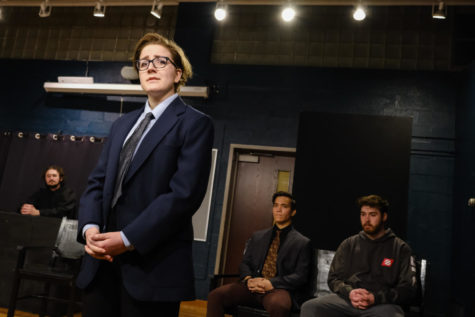
The Exponent is looking for financial contributions to support our staff and our newsroom in producing high-quality, well-reported and accurate journalism. Thank you for taking the time to consider supporting our student journalists.

